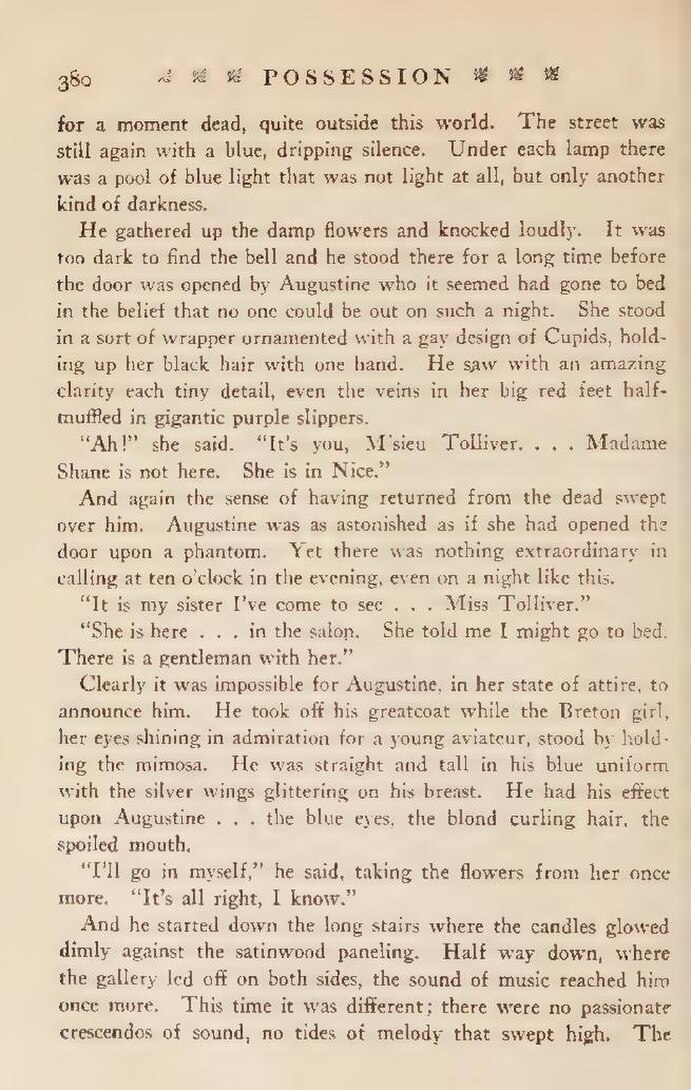for a moment dead, quite outside this world. The street was still again with a blue, dripping silence. Under each lamp there was a pool of blue light that was not light at all, but only another kind of darkness.
He gathered up the damp flowers and knocked loudly. It was too dark to find the bell and he stood there for a long time before the door was opened by Augustine who it seemed had gone to bed in the belief that no one could be out on such a night. She stood in a sort of wrapper ornamented with a gay design of Cupids, holding up her black hair with one hand. He saw with an amazing clarity each tiny detail, even the veins in her big red feet half-muffled in gigantic purple slippers.
"Ah!" she said. "It's you, M'sieu Tolliver. . . . Madame Shane is not here. She is in Nice."
And again the sense of having returned from the dead swept over him. Augustine was as astonished as if she had opened the door upon a phantom. Yet there was nothing extraordinary in calling at ten o'clock in the evening, even on a night like this.
"It is my sister I've come to see . . . Miss Tolliver."
"She is here . . . in the salon. She told me I might go to bed. There is a gentleman with her."
Clearly it was impossible for Augustine, in her state of attire, to announce him. He took off his greatcoat while the Breton girl, her eyes shining in admiration for a young aviateur, stood by holding the mimosa. He was straight and tall in his blue uniform with the silver wings glittering on his breast. He had his effect upon Augustine . . . the blue eyes, the blond curling hair, the spoiled mouth.
"I'll go in myself," he said, taking the flowers from her once more. "It's all right, I know."
And he started down the long stairs where the candles glowed dimly against the satinwood paneling. Half way down, where the gallery led off on both sides, the sound of music reached him once more. This time it was different; there were no passionate crescendos of sound, no tides of melody that swept high. The
